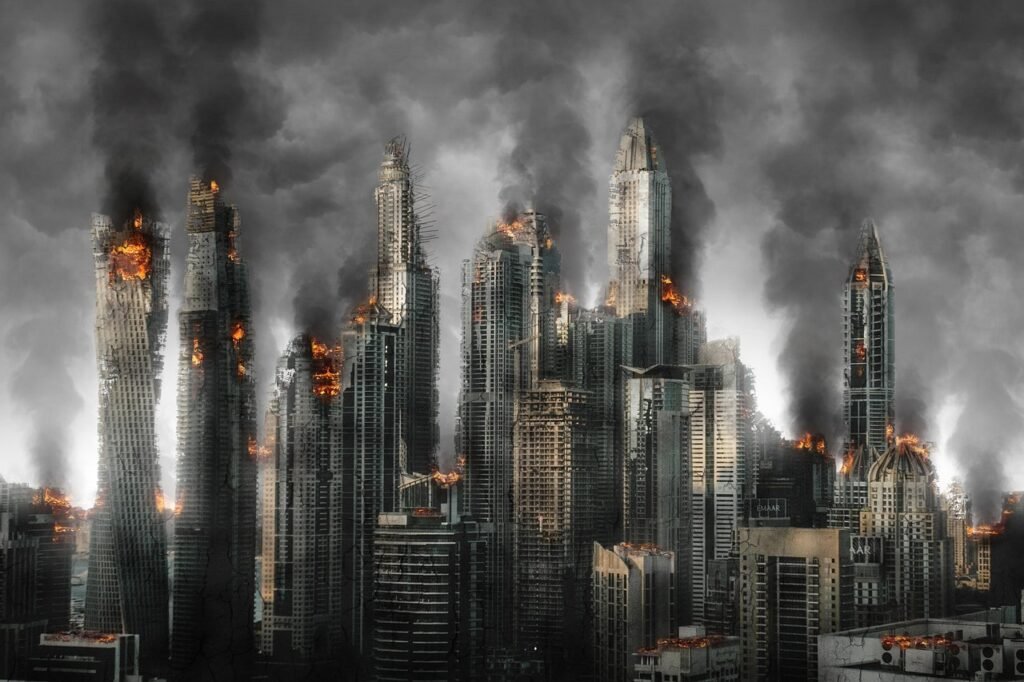The word “ceasefire” has dominated headlines in 2025, as the world watches the Middle East navigate some of its most dangerous moments in decades. From the recent Israel-Iran truce to the ongoing, fragile calm in Gaza, ceasefires have become both a symbol of hope and a reminder of the immense challenges that remain. For a UK audience, understanding the latest developments and their implications is crucial as Britain continues to play a diplomatic and humanitarian role in the region.
Israel and Iran: A Surprising Pause in Hostilities
On 23 June 2025, U.S. President Donald Trump announced a “complete and total” ceasefire between Israel and Iran, aiming to end a dramatic 12-day conflict that had threatened to spiral into a wider regional war. The agreement, brokered with the help of Qatari mediators, came after missile exchanges and covert operations raised fears of a broader confrontation. While the ceasefire is set to be implemented in phases, allowing both sides to complete “ongoing missions,” the announcement was widely welcomed as a crucial step in de-escalating tensions.
The truce followed direct talks between the U.S., Israel, and Iran, with Qatar playing a pivotal role in facilitating dialogue. While both Israeli and Iranian officials have yet to publicly confirm all details, the international community—including the UK—has praised the agreement and called for it to be the foundation for longer-term stability in the region.
Gaza: Ceasefire Brings Relief, But Humanitarian Crisis Deepens
Earlier in 2025, a separate ceasefire between Israel and Hamas came into effect after 15 months of devastating conflict in Gaza. The agreement, reached in January, was structured in three phases: an initial six-week halt to hostilities, the release of hostages and prisoners, and a commitment to begin Gaza’s reconstruction. The first phase saw the return of 33 Israeli hostages and hundreds of Palestinian detainees, as well as a partial withdrawal of Israeli forces from Gaza.
Despite the ceasefire, the situation on the ground remains dire. Over 46,000 Palestinians have been killed since October 2023, with nearly 1.9 million displaced and 92% of housing units destroyed. Humanitarian agencies warn that even with increased aid access, the needs in Gaza are overwhelming. Food, water, shelter, and medical supplies are in critically short supply, and many families have nowhere to return to. The UK government has repeatedly called for the ceasefire to be sustained, for barriers to aid to be lifted, and for all hostages to be released.
Ceasefire Agreements: Terms, Challenges, and Fragility
The ceasefire agreements in both Gaza and between Israel and Iran share some common features. They are phased, with initial pauses in fighting followed by humanitarian measures and, in some cases, prisoner exchanges. However, both are fragile and subject to setbacks. In Gaza, sporadic violence and airstrikes have continued even after the official start of the ceasefire, highlighting the difficulty of enforcing such deals in a volatile environment.
Mediators—including the U.S., Qatar, and Egypt—have played a central role in brokering and monitoring these agreements. Yet, political divisions remain deep. Israeli leaders have insisted on the dismantling of Hamas before agreeing to a permanent peace, while Hamas and other Palestinian groups demand guarantees for Gaza’s future governance and reconstruction. In the case of Israel and Iran, the phased approach allows both sides to claim progress without immediately resolving their core disputes.
The UK’s Role and International Response
The UK has consistently called for all parties to uphold ceasefire agreements, prioritise humanitarian access, and work towards a sustainable two-state solution in the Israeli-Palestinian conflict. British diplomats have welcomed the return of hostages and condemned attacks on civilians, while also urging for accountability for all parties involved in the violence. The Foreign Office has stressed that only a durable ceasefire—one that prevents further violence and allows for reconstruction—can lay the groundwork for lasting peace.
Humanitarian organisations in the UK have echoed these calls, highlighting the urgent need for aid, especially in Gaza. The focus is on ensuring that ceasefires are not just pauses in violence, but opportunities to address the root causes of conflict and support the most vulnerable.
Conclusion
While the latest ceasefires offer hope, they are only the beginning of a long road to peace. The destruction in Gaza is so extensive that rebuilding will take years and require tens of billions of pounds in aid and investment. In Israel and Iran, the risk of renewed hostilities remains high unless underlying tensions are addressed through sustained diplomacy.
For UK readers, the message is clear: ceasefires are essential, but they are not enough on their own. Continued international engagement, humanitarian support, and a focus on justice and reconciliation will be needed to turn these fragile truces into lasting peace. As the situation evolves, the UK’s role as a mediator, donor, and advocate for human rights will remain vital in shaping the future of the region.
To read more click here

